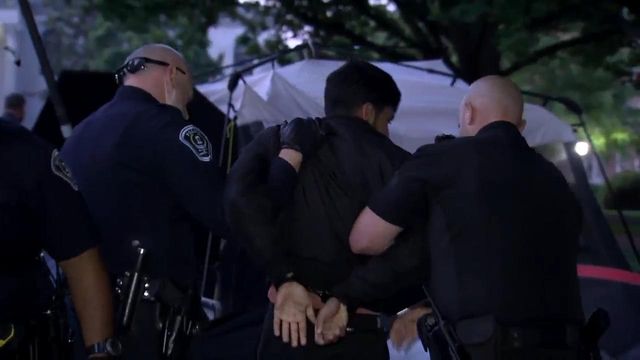NC House seeks to scrap state tests

The NC House has given a tentative okay to get rid of four end-of-course tests mandated by state education officials.
The tests at issue in HB 48 are standardized exams for U.S. History, Civics and Economics, Algebra 2 and Physical Science. None of the four are required by federal law under No Child Left Behind. They would be discontinued as of the 2011-12 school year.
Three end-of-course tests that are federally mandated — Algebra 1, 9th-grade English and Biology — wouldn’t be affected.
Bill sponsor Bryan Holloway (R-Stokes) taught history for six years. He said he’s not opposed to testing, but he thinks the current exams are inefficient, poorly designed and detrimental to good teaching.
“Somewhere along the way, we’ve been led to believe that testing is the only way we can measure proficiency in schools,” Holloway told his fellow lawmakers. “We have eliminated a lot of creativity” by teaching to the tests, he added, "when we should have been teaching kids critical analysis, writing, research-based materials.”
Holloway said scrapping the tests would also help close the state’s budget shortfall. “This bill will save $2.6 million. How many teachers does that add up to at $58,000 dollars a year? You can do the math.” (It’s about 45 positions, actually.)
“Math was never my strong suit,” Holloway joked. “If I took an Algebra 1 end-of-course test today, I would fail.”
The measure is co-sponsored by another teacher, Charlotte Democrat Tricia Cotham. But not all educators think it’s a good idea.
Sampson Democrat Larry Bell (D-Sampson) is a former history teacher, too. He said state testing should be improved, but argued that scrapping the end-of-course tests entirely would be like saying the state doesn’t care if students know those subjects.
Wake Democrat Deborah Ross also spoke against the bill. She said a similar proposal was dropped last year after Judge Howard Manning warned House leaders that scrapping the tests could run afoul of his Leandro decision, a court case that sought to ensure equal educational opportunities for the state’s economically disadvantaged students.
Ross said testing is a vital part of what Manning’s ruling defined as a sound, basic education. “We need to have a statewide accountability system for those courses.” Without that, Ross said, there’s no way to tell whether low-income students are getting the education to which they’re constitutionally entitled.
The measure passed its first House vote by a large margin, 101-16. The only Republican to vote against the bill was Johnston Rep. Leo Daughtry.
After the vote, Daughtry explained that the push for standardized testing dates back to the 1990s, when former Governor Jim Hunt campaigned to raise teacher salaries to the national average. Daughtry said Republicans at the time didn’t favor the raises, “But it was part of a compromise – raise their salaries, but also raise accountability.”
“It’s completely about the teachers,” he said. “These tests were not really set up to stress the students. That was not the issue. The issue was whether there was a way to measure a teacher’s performance as compared to other teachers in other counties.”
Daughtry says most principals like testing. “I got calls from two today who said the tests were a way for them to recognize which teachers weren’t performing as they’d hoped. You have to some way to gauge how teachers are doing. Otherwise you don’t know – you’d be guessing.”
The bill is scheduled for a final House vote tomorrow. After that, it heads over to the Senate.









